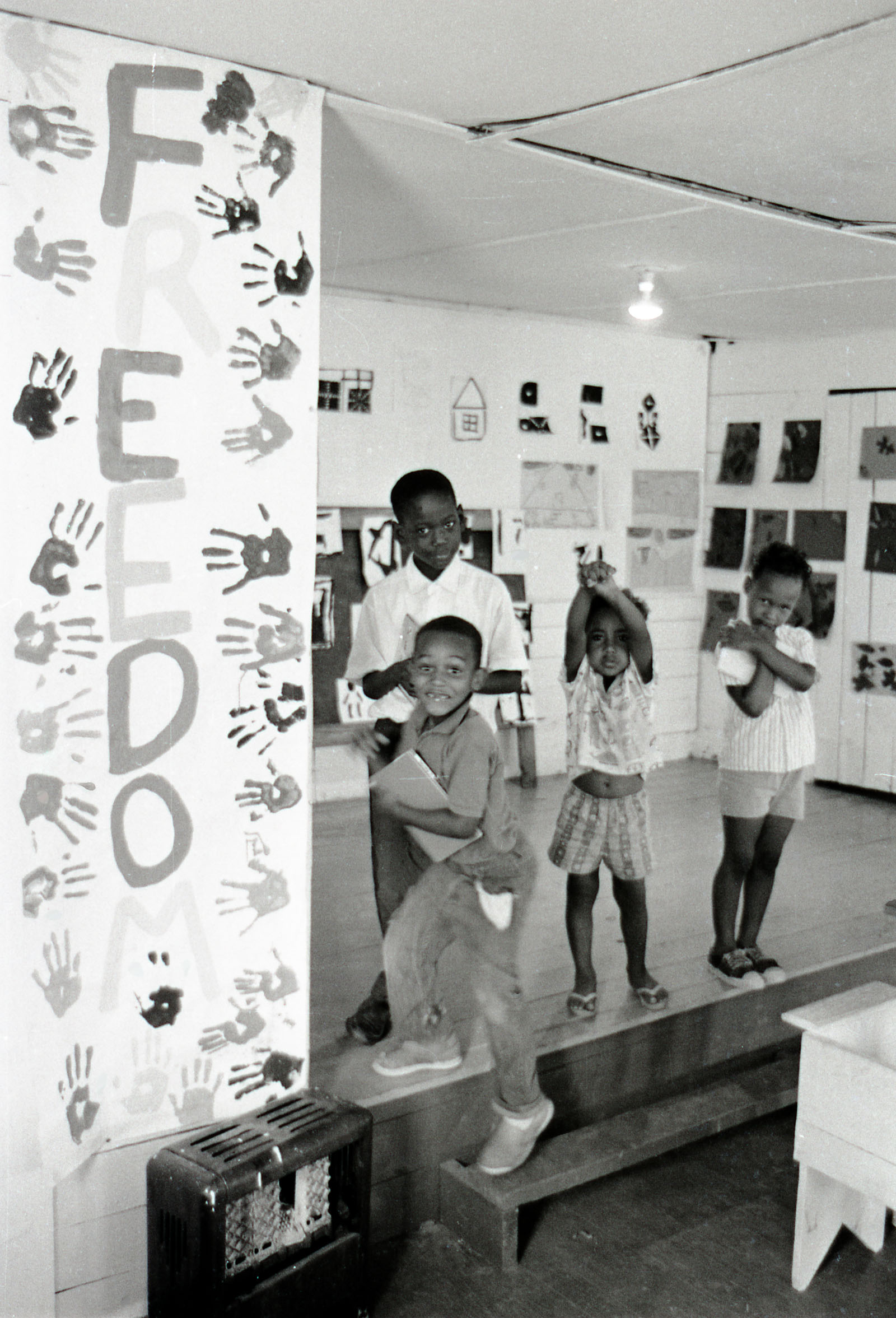Culture & Education
SNCC sought to empower the people who were most marginalized by white power. This bottom-up approach to organizing meant that cultural and educational work was infused in and central to SNCC’s work.

Children visiting exhibit of Freedom School students’ art work at the Palmers Crossing Community Center, Hattiesburg, Mississippi, 1964, Herbert Randall Freedom Summer Photographs, USM
Education, for example, was an essential part of SNCC’s voter registration efforts. Southern states used complicated voter registration exams and literacy tests to prevent Black people from voting. SNCC held workshops, organized a variety of literacy efforts, and even created comic books to raise people’s confidence and provide a process of political education that would help them register to vote.
“The whole freedom movement to me was to have people determine and define their lives,” SNCC staff coordinator Worth Long explained. SNCC’s cultural organizing was about power, “how it will and can empower people.” During the 1964 Summer Project, SNCC organized Freedom Schools where thousands of young Mississippians studied Black history and politics and wrote poetry and sang freedom songs. The Free Southern Theater went on tour, performing politically-charged plays and encouraging local people to use the arts in their fight for freedom.
Education through song, poetry, theater, and basic literacy all helped local Black people develop the tools they needed to continue their own struggle for liberation.




